Best hybrid SUVs 2025
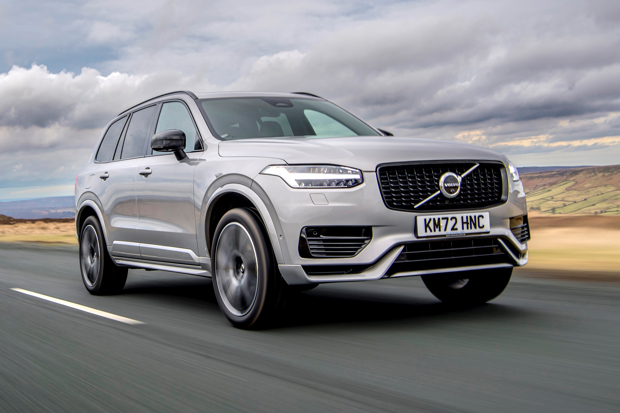
If you're after an SUV with low running costs but you're not quite ready to go full electric, a hybrid could be the answer. A hybrid SUV will be more affordable to buy than an electric equivalent, plus you'll enjoy the benefits of zero-emission driving when you're in a town or city.
There are two types of hybrid SUVs: 'self-charging' hybrids, which don't require plugging in to be recharged, and plug-in hybrids (PHEVs), which can be recharged like a full electric car. A plug-in hybrid will have a larger battery for typically 30-40 miles of electric range, but a 'self-charging' hybrid will do its best to switch to electric mode whenever possible.
We're focusing on both types here, because if you spend most of your time in the city, and you don't want the hassle of plugging in every night, a 'self-charging' hybrid SUV makes a lot of sense, not least because they're cheaper to buy. However, if you have access to a charging point, either at home or at work, a plug-in hybrid SUV could be just the ticket.
Almost every manufacturer offers a hybrid SUV of some description, but to help you on your way, we've selected 10 of the best you can buy right now.
Best hybrid SUVs
|
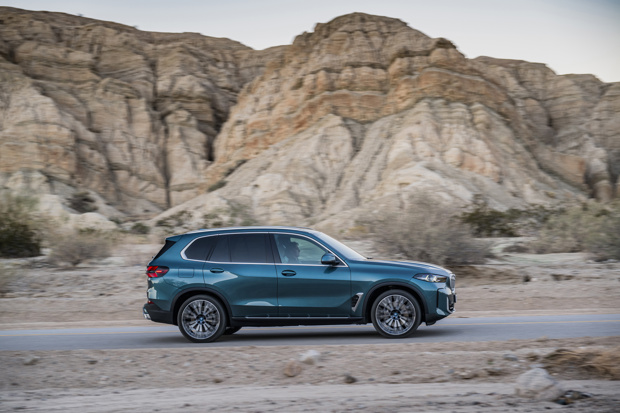
BMW X5 xDrive50e
The BMW X5 xDrive50e is a seriously impressive plug-in hybrid. It pairs a silky six-cylinder petrol engine with a punchy electric motor and 25.7kWh battery. That all adds up to 490PS, an electric driving range of up to 67 miles, plus official fuel economy of 313.9mpg. The EV range is enough for most to complete their everyday commute in pure electric mode, with the engine reserved for longer trips. You’ll relish them, because the big BMW X5 has a high-quality cabin, plenty of technology and a driver-focused nature that won’t fail to raise a smile. Business users will smile when they see how low their tax return is, too – CO2 emissions are as low as 18g/km. It’s just a pity the electric batteries eat into boot space, making the hybrid less practical than a standard X5.
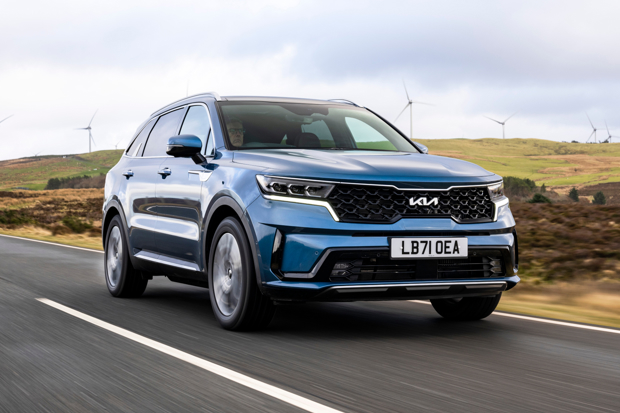
Kia Sorento PHEV
The Kia Sorento is proving popular here in the UK, particularly in plug-in hybrid guise. Modern, distinctive styling gives this large SUV status, and the interior is very roomy and comfortable. It comes with seven seats as standard, which fold flat into the floor when not in use. The plug-in hybrid setup combines an electric motor with a 1.6-litre turbo petrol engine, giving an impressive 261PS overall. A 13.8kWh battery offers an EV range of up to 35 miles, while CO2 emissions of 38g/km keep tax bills low. Good-value list prices help here, too: the Sorento PHEV is a bit of a bargain hybrid SUV, given its space, equipment and e-drive capability.
.jpg?width=620)
Renault Captur E-Tech
The Renault Captur small SUV offers two types of E-Tech hybrid; either a ‘self-charging’ hybrid system, or a plug-in hybrid with an electric driving range of 30 miles. The latter system produces 160PS, making it the most powerful Captur yet, and claimed fuel economy is almost 220mpg (aiding a low CO2 figure of 30g/km). It further enhances the well-liked, good-looking Captur, which is one of Europe’s most popular small SUVs. List prices starting from around £32,500 are offset by how much fuel you can save. And if that’s still too expensive, the regular Captur E-Tech hybrid is available at a more affordable price.
.jpg?width=620)
Land Rover Defender
The time of the Land Rover Defender being an old-fashioned, farm-dwelling 4x4 is gone. The current Defender is resolutely premium and packed with tech, including the P400e model. As well as all the latest top-end off-road capability you expect from Land Rover, plus a large dose of luxury in terms of features and interior quality, the P400e has lots of power at 404PS, and will manage up to 32 miles on electric power only. That means you can glide around town in electric silence with no polluting exhaust emissions, and still head out into the countryside and clamber over serious terrain.
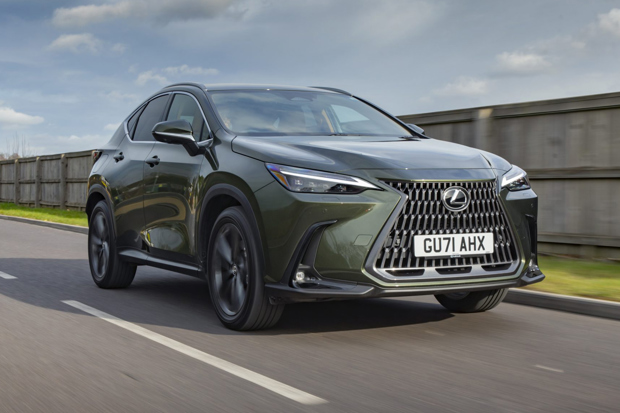
Lexus NX
Lexus is the luxury arm of Toyota, and the two brands have a long and enviable history in developing ‘self-charging’ hybrid cars. However, the latest NX is also available as a plug-in hybrid, giving customers a choice in tech. The NX 350h regular hybrid uses Lexus’ long-proven 2.5-litre engine with two electric motors, giving you 244PS and a claimed fuel economy of up to 49.5mpg. Meanwhile, the more expensive NX450h+ adds four-wheel-drive and plug-in capability, with more power (309PS) and a very impressive electric-only range of up to 40 miles. On top of the tech, the NX is a very decent car, with an outstandingly premium interior, an infotainment system much improved on earlier versions of the NX, and a decent towing ability of 1500kg.

Volvo XC90 Recharge
The Volvo XC90 is seven-seat luxury SUV that ticks a lot of boxes. It looks good, the interior oozes sophistication, it's practical enough for a growing family, and it just happens to be on the safest SUVs on the planet. To these compelling credentials, the Recharge plug-in hybrid model offers lower running costs and the ability to drive up to 43.5 miles in electric mode. As with all plug-in hybrids, it's important to keep it recharged, otherwise you're paying the best part of £70,000 to add a depleted battery to your list of passengers.
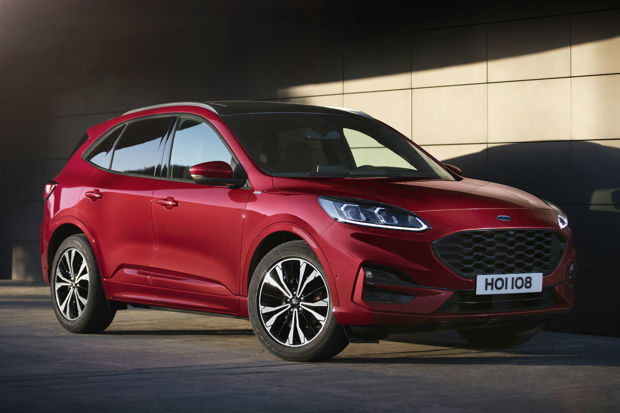
Ford Kuga PHEV
Ford sells the Kuga both as a regular hybrid and this plug-in Kuga PHEV. It has an ample 225PS and officially averages up to 282.5mpg, while a 14.4kWh battery gives an electric driving range of up to 41 miles. It’s just as space-efficient as all other Ford Kugas and shares the same sleek bodystyle, which we think carries more than a hint of Aston Martin DBX. Ford has been careful to ensure the maximum towing weight is still a decent 1500kg as well; many buy SUVs with towing in mind, and in this respect, the Kuga retains its key credentials, despite its eco makeover.
.jpg?width=620)
Audi Q5 TFSI e
British car buyers really rate the Audi Q5, and it’s now able to take on premium plug-in hybrid rivals such as the BMW X3 xDrive30e with this TFSI e variant. The Q5 50 TFSI e, which is offered in a broad range of trims including Sport, S line and Black Edition, packs a 299PS punch. It also has a generous 17.9kWh battery, giving a pure electric range of 39 miles. The petrol engine takes over for longer trips, which the Q5 will conduct with effortless ease. Audi’s famed build quality is evident throughout and the good-looking, family-sized Q5 hybrid will bring an air of classy kudos to your driveway.
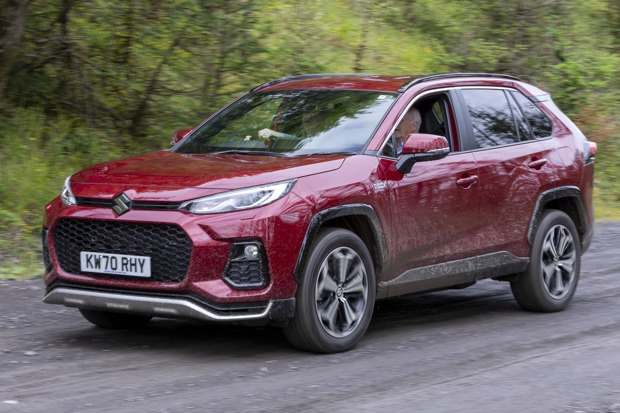
Suzuki Across
You're forgiven for thinking the Suzuki Across looks familiar, because it's essentially a rebadged Toyota RAV4. That's no bad thing, because the RAV4 is one of the world's best-selling SUVs for a reason, combing efficient engines, a practical interior and a solid reputation for reliability. There's only one Across model available in the UK: a plug-in hybrid with a long list of equipment fitted as standard. The kit, combined with 46 miles of electric range, helps to justify the £48,000 asking price.
.jpg?width=620)
Hyundai Tucson Plug-in Hybrid
The latest Hyundai Tucson is a very distinctive-looking SUV. It has the firm’s latest angular design style, and includes a remarkable LED light array built into the patterned grille. A similarly modern drivetrain is available in the line-up: the Tucson Plug-in Hybrid. Its 1.6-litre turbo engine and electric motor combine to deliver 265PS to all four wheels, and a 13.8kWh battery gives a 38-mile pure electric range. Hyundai also offers a cheaper Tucson hybrid, along with even more affordable petrol and diesel mild-hybrid models. All of them benefit from Hyundai’s superb five-year, unlimited-mileage warranty.
What is the best mid-size hybrid?
As diesels decline, the mid-size hybrid SUV sector is growing fast. Today, competitive models such as the Ford Kuga PHEV, Suzuki Across and Lexus NX all impress, and there are plenty more vehicles on the horizon to ensure hybrid SUV buyers will soon be spoilt for choice. For its electric range, list of standard equipment and proven reliability, the Across is worth checking out.
What is the best hybrid 4x4 in the UK?
Some of the hybrid SUV models here, such as the Ford Kuga PHEV, do not offer all-wheel drive. This limits their usefulness for those who live in remote areas, or want to travel off-road. Buyers who need genuine 4x4 traction should look to heavy-duty machines such as the Kia Sorento, Land Rover Defender and even the all-wheel-drive Hyundai Tucson Plug-in Hybrid.
Are hybrid SUVs reliable?
Years of development have gone into the latest hybrid SUV systems to ensure they are strong and reliable. Many manufacturers offer comprehensive eight-year warranties on plug-in hybrid components – longer than the overall car warranty – which is very reassuring. This is likely to make them even more reliable than their petrol and diesel SUV equivalents.
Which plug-in hybrid small SUV should I buy?

